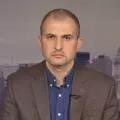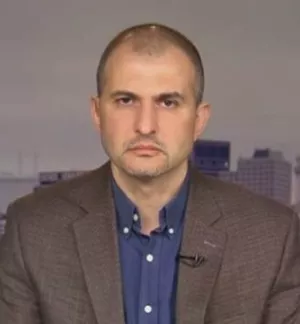Putin and Medvedev will remain at the political helm throughout 2011 – and most likely beyond. In addition to thorny questions of leadership, however, political, economic and foreign policy harbingers will prove vital in determining the course of the country in the coming years. But what elements in particular will prove decisive, and what ‘unknowns’ should be on our radar?
Putin will remain the key decision-maker throughout 2011 despite occupying the post of prime minister, and Dmitry Medvedev will remain president at least until May 2012 - absent a catastrophic crisis that he fails to resolve - despite trailing Putin in both influence and popularity. The prime minister, president and their allies (protégés of both men in key posts in executive and judiciary branches) will continue to exercise tight control over the federal government, most of regional leaders and parliament. They will also continue to exercise formidable influence on the judiciary, mass media and much of civil society. Of all groupings brought to power by Putin after becoming president in 2000, 'Siloviki', made up for former and active officers of Russia's security, intelligence and law-enforcement agencies, will remain the strongest clan in the country's political elite.
Looking at the broader political environment, the December 2011 elections to the lower chamber of the federal parliament will see United Russia - Putin's party - retain a majority in the State Duma, although it may shrink somewhat. The party will continue to control the upper chamber of the federal parliament and many regional parliaments, greatly strengthening Putin's and Medvedev's agenda.
Radicalization of what the Kremlin has termed "non-systemic opposition" is set to continue, with many opposition figures joining forces to challenge authorities in spite of political differences. Public disturbances and clashes with police will also likely continue.
Fueled by oil prices, approaching $100 per barrel in January 2011, the Russian economy will continue its recovery from the global economic crisis. Russia's nominal GDP is set to grow by 4.3 percent in 2011, up from 4.1 percent in 2010, according to The Economist's 14 January forecast. As oil and gas account for half of Russia's budget revenues and more than 60 percent of its exports, the economy will remain dependent on world oil prices in the short-term, despite Medvedev's repeated calls for diversification and modernization of the economy. Widespread corruption will continue to undermine government efforts to modernize and diversify the economy, improve governance and strengthen rule of law, despite Medvedev's continued work to fight graft. The presidential administration estimates that corruption costs Russia the equivalent of 2.9 percent of its GDP annually.
Overall social and economic disparity will persist, undermining central government efforts to streamline the social, economic and security environment across the country.
Security and defense factors
Russia's strategic nuclear triad will remain a sufficient deterrent, maintaining relative parity with the US thanks to the New START treaty, while conventional forces will remain inferior to those of NATO and China, but robust enough to prevail in any conflict along its southern frontiers.
While unable to fully contain insurgencies in the North Caucasus, security and law-enforcement services will remain strong, particularly the Federal Security Service. These agencies are capable of effectively quelling opposition protests to secure a smooth transfer of power or Medvedev's re-election in 2012.
North Caucasus-based terrorism and insurgency networks have enough members, resources and support to continue low-intensity conflict in the region while also staging terrorist attacks in major Russian cities. Strategically and with the bigger geopolitical picture in mind, these networks would benefit from US withdrawal from Iraq and Afghanistan because these events would prompt jihadist networks to divert some of their attention back to the North Caucasus.
Furthermore, a continuing string of racially motivated attacks, including the December 2010 rampage by ultra-nationalists in downtown Moscow, shows that violent ultranationalism is growing increasingly strong and popular in the country.
Foreign policy factors
Russian government agencies will continue to fulfill Medvedev's call to "stop puffing one's chest" and focus on establishing what the president has called "modernization alliances" with Western countries, aimed at gaining access to their expertise and technologies. The Kremlin will also continue to seek the integration of the Russian economy into major global systems on favorable terms, including membership in the WTO and OECD, as well as seeking favorable trading conditions.
Russia will continue to try to anchor as many former Soviet states as possible to Moscow, particularly on the energy and collective security fronts. With the West, it will continue to share an interest in battling international terrorist and organized crime networks as well as countering proliferation. This common ground with the West will impact on Russia's policy toward countries like Afghanistan (production and trafficking of opiates) and North Korea (nuclear weapons program).
Russia is expected to display more willingness to align its position with that of the West on the issue of North Korea's nuclear weapons program, than on the issue of Iran's nuclear program, given Moscow's economic interests in Iran and Teheran's capacity to act as a spoiler for Russia in the North Caucasus, South Caucasus and Central Asia. However, Russia is expected to continue to assist the West in preventing Iran from going nuclear, although only as long as this assistance does not seriously antagonize Iran.
While there is a significant divergence of interests between Russia and the US on a number of issues - most notably missile defense in Europe, diversification of energy exports routes from the post-Soviet neighborhood and Kosovo's status - none are likely to seriously disrupt the recent 'reset' in the relationship. Medvedev will continue to pursue the pragmatic foreign policy for which he has become known, seeking to constrain US missile defense systems in Europe, while securing US help in modernizing the Russian economy, among other things.
Relations between the EU and Russia should remain increasingly positive, although no breakthroughs are expected. Trade will continue to flourish, and improvements in bilateral relations are expected on both the visa and education fronts.
Because NATO has put on hold plans to accept Georgia and Ukraine into the alliance, NATO-Russia relations will continue to thaw in the coming year, as Moscow and Brussels advance their mutual interest on issues like the stabilization of Afghanistan, prevention of conflicts in Eurasia, combating terrorism and countering proliferation of WMD and missile technologies.
Russia will also continue to engage China - while looking on with concern about its continuing climb to superpower status - focusing on trade in energy and arms as well as on regional security.
Key uncertainties for the coming year
The key uncertainties outlined below may make a real difference in Russia, by leading to a change of guard in the Kremlin and a serious change in the course of Russia's development:
There is no doubt that Putin can return to the Kremlin in 2012 if he decides to, given Medvedev's loyalty to his mentor, his power-base and the regime's ability to influence the vote, if not the vote count. Leaked US diplomatic cables and press reports, however, indicate that Putin's work ethic has declined, and he might be suffering from fatigue. Nevertheless, both Putin and Medvedev have repeatedly indicated that they are ready to run next year, though Putin is yet to formally announce whether he will run.
Furthermore, an escalation of frozen conflicts in the former Soviet space will have a profoundly destabilizing impact on the neighborhood, which Russia sees as its backyard. A renewed armed conflict with Georgia over South Ossetia and Abkhazia or the conflict in Nagorno Karabakh may spread violence and instability into Russia's already volatile North Caucasus region. The real possibility of state collapse in one of these frozen regions could serve as a springboard for terrorist and insurgency networks.
A related 'terrorist nightmare' always looms on the horizon: The acquisition and use of WMD weapons in a major Russian city and/or large-scale hostage-takings, which would trigger a massive and indiscriminate government response and cause long-term destabilization of the region with re-emergence of rebel-controlled pockets in far-flung corners of the North Caucasus.
Moreover, the Russian economy still lags behind global market leaders in productivity and efficiency and remains too dependent on natural resource exports. A protracted second wave of the global economic crisis may hit Russia hard, forcing the government to spend all of its 'rainy day' funds. Russia's 2011 budget is based on the assumption that the price of blend oil will stay at $75 or more and the government currently forecasts that price to average $80 this year. Should the price of oil fall by over 50 percent and stay at that level, the government would quickly deplete its reserves and become unable to honor its obligations to the population, possibly causing major upheavals.
A massive and lasting infrastructure failure, natural disaster or eruption of nationalist riots in major Russian cities could also destabilize the regime in the coming year. However, as with all of the other aforementioned uncertainties, their likelihood cannot be definitively assessed.
Conclusion
A deepening of the economic crisis and the 2012 presidential elections may force Putin and Medvedev to back a third candidate for the presidency, while other types of acute crises, such as war or massive nationalist riots, will make the return of Putin to the Kremlin more likely. In the absence of such major crises, the probability that Medvedev stays in his post beyond May 2012 remains high, however. Given Medvedev's commitment to modernize Russia, this would undoubtedly be the most favorable of all outcomes.
Simon Saradzhyan is a research fellow at Harvard Kennedy School's Belfer Center. He is the author of several papers on security and terrorism.
Nabi Abdullaev is deputy editor of The Moscow Times.
Saradzhyan, Simon and Nabi Abdullaev. “Russia: Looking Ahead.” International Relations and Security Network, February 22, 2011


